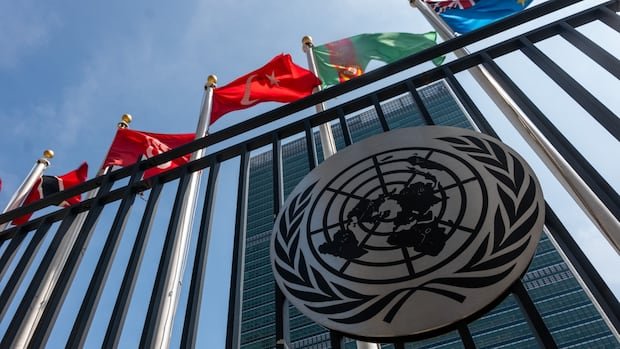The United Nations has reinstated sanctions on Iran early Sunday due to its nuclear program, intensifying pressure on the Islamic Republic as its citizens struggle with soaring food prices and uncertainties about their future. Despite last-ditch diplomatic efforts at the UN, the sanctions came into effect at 8 p.m. ET on Sunday.
The sanctions involve freezing Iranian assets abroad, ceasing arms deals with Tehran, and penalizing any advancements in Iran’s ballistic missile program, among other measures. This move, known as “snapback,” was stipulated in Iran’s 2015 nuclear agreement with global powers and is hitting Iran’s already fragile economy hard.
Iran’s rial currency has hit an all-time low, exacerbating the inflation of essential food items like meat and rice, making everyday life increasingly challenging for its people. Moreover, concerns are mounting about potential escalations in conflict between Iran and Israel, and possibly the United States, as previously targeted missile sites from the recent 12-day war in June seem to be under reconstruction.
Activists are apprehensive about a surge in repression within Iran, which has reportedly seen a higher number of executions this year compared to the last three decades. The snapback mechanism was designed to be impervious to vetoes at the UN Security Council, preventing countries like China and Russia from blocking it, as they have done with past proposals against Tehran. Russian Foreign Minister Sergey Lavrov criticized the sanctions as a “trap” for Iran.
France, Germany, and the United Kingdom initiated the snapback process a month ago due to Iran’s increased limitations on monitoring its nuclear program and the stalemate in negotiations with the U.S. Iran further distanced itself from International Atomic Energy Agency (IAEA) oversight following the conflict with Israel in June, which also witnessed U.S. strikes on Iranian nuclear facilities.
While Iran maintains a stockpile of uranium enriched up to 60%, just a technical step away from weapons-grade levels, enough to produce multiple atomic bombs, it asserts that its nuclear program is for peaceful purposes. However, Western nations and the IAEA claim Iran had a military-oriented nuclear program until 2003.
Iran has challenged the authority of the three European nations to enforce snapback, citing the U.S.’s unilateral exit from the agreement in 2018 during President Donald Trump’s administration. In response to the sanctions, Iran recalled its ambassadors to France, Germany, and the U.K. for consultations, as reported by the state-run IRNA news agency.
U.S. Secretary of State Marco Rubio commended the European nations for their resolute global leadership in reapplying sanctions on Iran. Rubio emphasized Trump’s stance on diplomacy as a viable option, highlighting the importance of direct negotiations for a favorable outcome for both the Iranian people and the global community.


